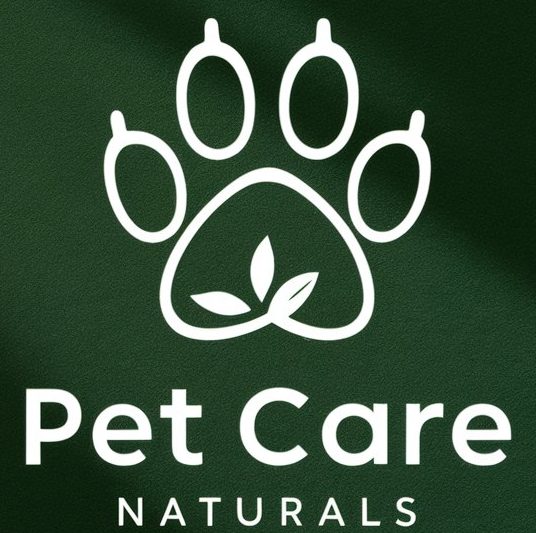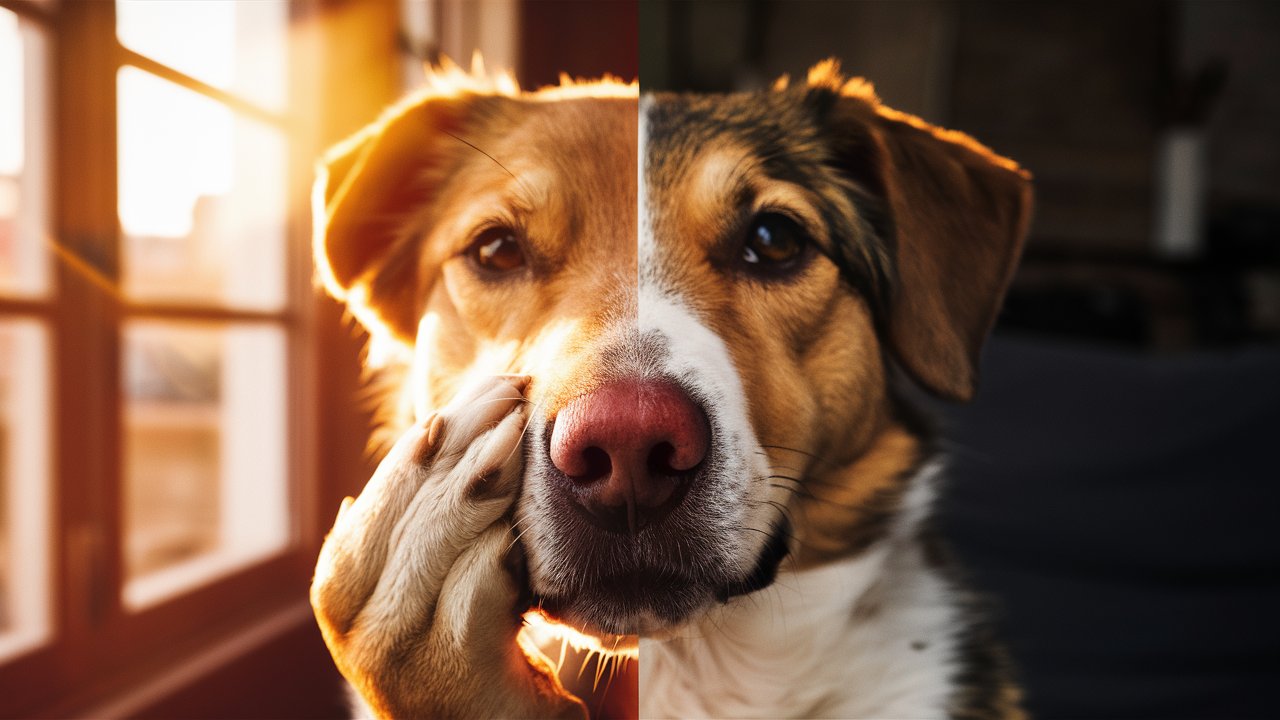Is your dog sneezing frequently, causing you to worry about their well-being? Sneezing in dogs can be a simple reflex or a sign of something more serious. While an occasional sneeze might not be a cause for concern, frequent or persistent sneezing could indicate an underlying issue that requires attention. As a responsible pet owner, it’s crucial to understand the possible reasons behind your dog’s sneezing and explore home remedies that can alleviate their discomfort.
In this detailed guide, we’ll delve into the common causes of sneezing in dogs, offer home remedies that can help, and provide tips on when it’s time to seek veterinary care. Whether you’re dealing with a one-time sneeze or a chronic issue, this article aims to equip you with the knowledge to ensure your furry friend’s health and happiness.
Understanding the Causes of Sneezing in Dogs
Sneezing in dogs can be triggered by various factors, ranging from harmless irritants to more serious health concerns. To effectively address your dog’s sneezing, it’s important to identify the root cause. Here are some common reasons why dogs sneeze:
- Irritants and Allergens
- Environmental Irritants: Dogs are exposed to a wide range of environmental irritants, such as dust, pollen, smoke, and strong odors. These particles can irritate the sensitive lining of a dog’s nose, leading to sneezing as the body attempts to expel the irritant.
- Seasonal Allergies: Just like humans, dogs can suffer from seasonal allergies. Pollen from trees, grasses, and weeds can trigger an allergic reaction, causing sneezing, itching, and watery eyes.
- Infections
- Respiratory Infections: Upper respiratory infections, often caused by bacteria or viruses, can lead to sneezing in dogs. Common symptoms include nasal discharge, coughing, and lethargy. Kennel cough, a highly contagious respiratory infection, is a notable example.
- Nasal Mites: These tiny parasites can infest a dog’s nasal passages, leading to frequent sneezing, nasal discharge, and irritation. Nasal mites are often contracted through direct contact with other dogs or contaminated environments.
- Foreign Objects
- Nasal Obstructions: Dogs are naturally curious and may sniff around in areas where foreign objects like grass, seeds, or small debris can become lodged in their nasal passages. This can cause sudden sneezing fits as the dog tries to dislodge the object.
- Fungal Infections: Certain fungi can invade a dog’s nasal passages, leading to chronic sneezing and nasal discharge. Aspergillosis, caused by the Aspergillus fungus, is one such infection that requires prompt veterinary attention.
- Dental Problems
- Tooth Abscesses: Infections in a dog’s teeth, particularly the upper molars, can lead to sneezing. The roots of these teeth are located near the nasal passages, and an abscess can cause inflammation that triggers sneezing.
- Nasal Tumors
- Growths in the Nasal Cavity: While less common, tumors in the nasal cavity can cause sneezing, nasal discharge, and even bleeding. These growths may be benign or malignant, and early detection is crucial for effective treatment.
Understanding the underlying cause of your dog’s sneezing is the first step in providing appropriate care. If your dog’s sneezing is persistent, accompanied by other symptoms, or you suspect a serious issue, consulting a veterinarian is essential.
5,000+ People Saw Related Offers
- Discover the best home remedies to stop your dog’s sneezing naturally. Click now for a healthier, happier pet!
- Natural dog sneezing solutions you can try at home. Learn more and keep your dog sneeze-free today!
- Stop dog sneezing with these simple home remedies. Act now to keep your furry friend comfortable!
- Get top pet care essentials from Chewy! Limited-time offers on dog health products. Click to shop now!
- Save big on Pet Care Naturals products! Exclusive deals on dog health and wellness. Hurry, offers end soon!
- Shop Amazon Pets for the best dog care accessories. Limited stock available—grab yours today!
- Treat your dog right with premium pet care gear. Exclusive offers from top brands like Chewy and Amazon. Click here!
- Act now! Get the best remedies to stop dog sneezing fast. Click for solutions today!
- Discover top pet care products at amazing prices! Shop now for your dog’s health and comfort.
Sponsored Contents ⓘ | Advertise Now
Home Remedies for Sneezing Dogs
While professional veterinary care is sometimes necessary, many cases of sneezing in dogs can be managed with simple home remedies. These remedies can help alleviate mild symptoms and provide relief to your furry friend. Below are some effective home remedies to consider:
- Steam Therapy
- How It Works: Steam therapy is an excellent way to soothe your dog’s nasal passages and clear any congestion. The moisture in the steam helps to loosen mucus and reduce irritation, making it easier for your dog to breathe.
- How to Apply: Create a steam room by running a hot shower and letting your dog sit in the bathroom for 10-15 minutes. Ensure your dog is comfortable and monitor them closely. This method is especially useful for dogs suffering from respiratory infections.
- Humidifiers
- How It Works: Dry air can exacerbate sneezing and respiratory discomfort in dogs. Using a humidifier in your home adds moisture to the air, which can help soothe your dog’s nasal passages and reduce sneezing.
- How to Apply: Place a humidifier in the room where your dog spends most of their time. Be sure to clean the humidifier regularly to prevent mold and bacteria growth.
- Saline Nasal Drops
- How It Works: Saline nasal drops can help clear out irritants and mucus from your dog’s nasal passages. The saline solution acts as a gentle cleanser, reducing inflammation and discomfort.
- How to Apply: Use a saline solution specifically designed for pets or consult your vet for a suitable product. Administer a few drops into each nostril, and gently massage the bridge of your dog’s nose to distribute the solution. This remedy is particularly helpful for dogs with dry or irritated nasal passages.
- Herbal Remedies
- Echinacea: Echinacea is known for its immune-boosting properties and can help your dog fight off infections that cause sneezing. You can find Echinacea in liquid form, which is easy to mix with your dog’s food.
- Licorice Root: Licorice root has anti-inflammatory properties and can help soothe irritated nasal passages. It can be administered in small doses, either as a liquid extract or a dried powder added to food.
- Honey
- How It Works: Honey has natural antibacterial properties and can help soothe your dog’s throat if they are sneezing due to irritation or a mild infection.
- How to Apply: Offer your dog a teaspoon of raw, unfiltered honey once or twice a day. Be sure to choose honey that is free from additives. This remedy is especially useful if your dog is also experiencing a cough.
- Boosting Your Dog’s Immune System
- Balanced Diet: A diet rich in essential nutrients strengthens your dog’s immune system, helping them fight off infections that may cause sneezing. Include high-quality protein, healthy fats, and a variety of fruits and vegetables in their diet.
- Supplements: Consider adding supplements like omega-3 fatty acids, vitamin C, and probiotics to your dog’s diet to boost their overall health and immunity.
- Keeping Your Home Clean
- Reducing Allergens: Regularly clean your home to minimize allergens like dust, pollen, and pet dander. Vacuum carpets, wash bedding, and dust surfaces frequently to reduce the presence of irritants that could trigger sneezing.
- Air Purifiers: Invest in an air purifier to remove airborne allergens and pollutants from your home. This can significantly reduce the frequency of your dog’s sneezing, especially if they are sensitive to environmental factors.
- Essential Oils (Used with Caution)
- Lavender Oil: Lavender oil has calming properties and can help soothe your dog if they are sneezing due to anxiety or stress. Add a few drops to a diffuser, but never apply essential oils directly to your dog’s skin or allow them to ingest it.
- Eucalyptus Oil: Eucalyptus oil can help clear nasal congestion. Use it in a diffuser, or place a few drops on a cotton ball near your dog’s bed. Always ensure the area is well-ventilated and monitor your dog for any signs of discomfort.
Check out other solution articles to dog sneezing that people also read: Probiotics for Dog Allergies: Relief & Prevention
Preventing Sneezing in Dogs: Proactive Measures
While home remedies can be effective, prevention is always better than cure. Here are some tips to help prevent sneezing in your dog:
- Regular Vet Check-ups
- Routine Health Assessments: Regular vet visits are crucial for early detection of health issues that could cause sneezing. Your vet can check for respiratory infections, dental problems, or other underlying conditions.
- Vaccinations: Keep your dog’s vaccinations up to date to prevent common respiratory infections like kennel cough.
- Allergen Management
- Seasonal Precautions: During high pollen seasons, limit your dog’s outdoor activities and wash their paws and fur after walks to remove any allergens they may have picked up.
- Allergy Testing: If your dog’s sneezing is persistent and seems related to environmental factors, consider having them tested for allergies. Your vet can help identify specific triggers and suggest appropriate treatments or lifestyle adjustments.
- Dental Hygiene
- Regular Teeth Cleaning: Brush your dog’s teeth regularly to prevent dental issues that could lead to sneezing. Dental chews and professional cleanings can also help maintain oral health.
- Monitor for Signs of Dental Problems: Watch for signs of dental issues, such as bad breath, difficulty eating, or pawing at the mouth, and seek veterinary care promptly if you notice any of these symptoms.
- Avoiding Exposure to Irritants
- Smoke-Free Environment: Protect your dog from exposure to cigarette smoke, which can irritate their respiratory system and cause sneezing.
- Pet-Safe Cleaning Products: Use pet-safe cleaning products in your home to avoid exposing your dog to harsh chemicals that could trigger sneezing or other health issues.
- Safe Exploration
- Supervised Playtime: Keep an eye on your dog during outdoor activities to prevent them from sniffing or ingesting foreign objects that could become lodged in their nasal passages.
- Appropriate Toys: Provide your dog with safe, non-toxic toys to chew and play with, reducing the risk of nasal obstructions caused by small parts or pieces.
When to Seek Veterinary Care
While home remedies can be effective for mild cases of sneezing, there are instances when veterinary care is necessary. Here are some signs that indicate it’s time to take your dog to the vet:
- Persistent Sneezing
- If your dog is sneezing frequently and the episodes last for more than a few days, it’s important to consult a vet. Persistent sneezing could indicate a more serious issue, such as a respiratory infection or nasal tumor.
- Nasal Discharge
- If your dog has nasal discharge, especially if it’s thick, yellow, green, or bloody, seek veterinary attention immediately. This could be a sign of an infection, foreign object, or other serious condition.
- Difficulty Breathing
- Any signs of labored breathing, wheezing, or choking require immediate veterinary care. These symptoms could indicate a blocked airway or severe respiratory distress.
- Loss of Appetite or Lethargy
- If your dog is not eating, appears lethargic, or is not their usual energetic self, it may be a sign of a more serious underlying issue. A vet can assess your dog’s overall health and determine the cause of these symptoms.
- Pain or Discomfort
- If your dog shows signs of pain, such as pawing at their nose, rubbing their face on the ground, or showing sensitivity to touch around the face, it’s important to seek veterinary care. These behaviors may indicate a foreign object, dental issue, or other painful condition.
5,000+ People Saw Related Offers
- Discover the best home remedies to stop your dog’s sneezing naturally. Click now for a healthier, happier pet!
- Natural dog sneezing solutions you can try at home. Learn more and keep your dog sneeze-free today!
- Stop dog sneezing with these simple home remedies. Act now to keep your furry friend comfortable!
- Get top pet care essentials from Chewy! Limited-time offers on dog health products. Click to shop now!
- Save big on Pet Care Naturals products! Exclusive deals on dog health and wellness. Hurry, offers end soon!
- Shop Amazon Pets for the best dog care accessories. Limited stock available—grab yours today!
- Treat your dog right with premium pet care gear. Exclusive offers from top brands like Chewy and Amazon. Click here!
- Act now! Get the best remedies to stop dog sneezing fast. Click for solutions today!
- Discover top pet care products at amazing prices! Shop now for your dog’s health and comfort.
Sponsored Contents ⓘ | Advertise Now
Check out other solution articles to dog sneezing that people also read: Probiotics for Dog Allergies: Relief & Prevention
Key Takeaways
- Understanding Causes: Sneezing in dogs can be caused by irritants, allergies, infections, dental issues, or nasal obstructions.
- Home Remedies: Steam therapy, saline drops, herbal remedies, and maintaining a clean environment are effective home remedies for mild cases.
- Prevention: Regular vet check-ups, managing allergens, dental hygiene, and avoiding exposure to irritants can prevent sneezing in dogs.
- Veterinary Care: Seek veterinary attention if your dog’s sneezing is persistent, accompanied by nasal discharge, difficulty breathing, or other concerning symptoms.
Your dog’s health is important, and by taking these steps, you can help them live a comfortable and happy life.
Conclusion
Sneezing in dogs can be caused by a variety of factors, from simple irritants to more serious health concerns. Understanding the underlying cause is key to providing effective care and ensuring your dog’s well-being. While many cases of sneezing can be managed with home remedies, it’s important to be vigilant and seek veterinary care when necessary.
By implementing the home remedies and preventive measures outlined in this guide, you can help your dog stay healthy and reduce the likelihood of sneezing episodes. Remember, your dog’s health is a top priority, and being proactive in their care can make a significant difference in their quality of life.
In summary, this comprehensive guide has provided you with valuable insights into the causes of sneezing in dogs, effective home remedies, preventive tips, and when to seek professional veterinary care. By following these guidelines, you can ensure that your furry friend stays happy, healthy, and sneeze-free.







